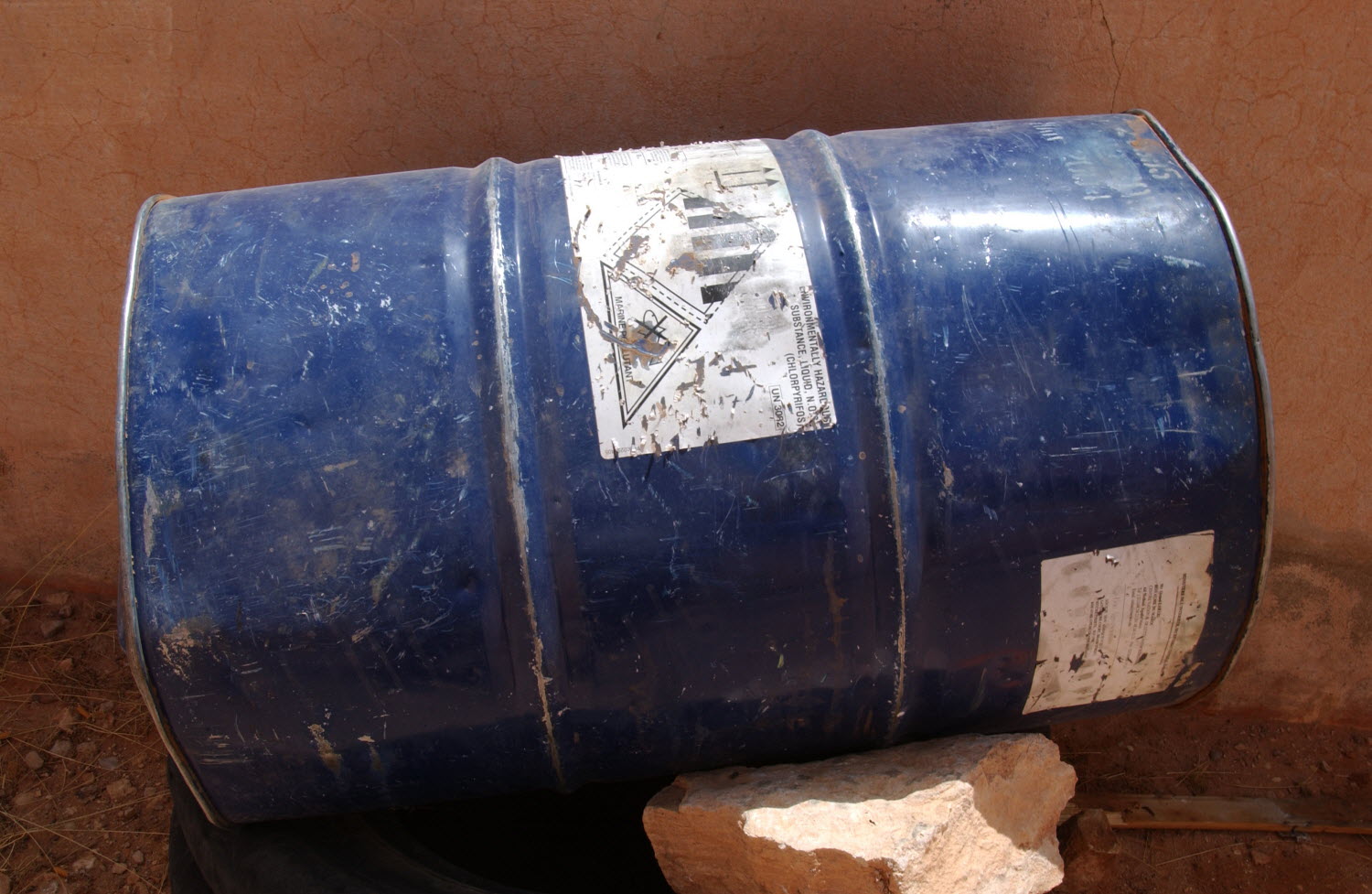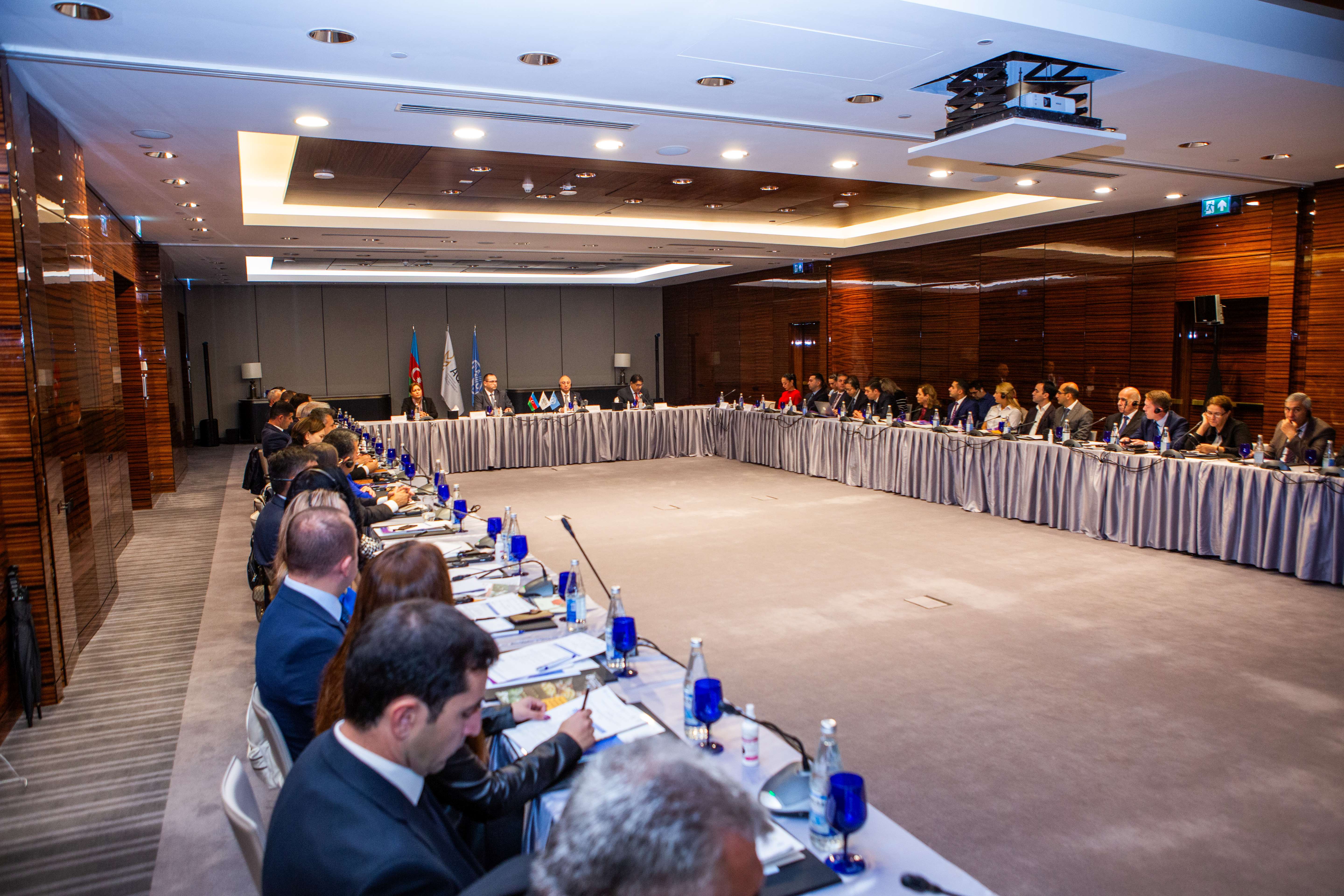Experts lay plans for obsolete pesticides in Central Asia, Türkiye during Baku workshop

©FAO/Giampiero Diana
It is estimated that around half the obsolete pesticides in the world can be found in the former Soviet Union, with a large portion currently sitting in Central Asia. During Soviet times, the region was an important centre for agriculture, particularly cotton production, with mandatory pesticide application and oversupply.
To help solve this, representatives from Azerbaijan, Kazakhstan, Kyrgyzstan, Tajikistan and Türkiye gathered from 18 to 20 September in Baku, Azerbaijan, for a regional workshop on pesticide lifecycle management. Also, delivering remarks during the workshop were Goshgar Tahmazli, Chairman of the Azerbaijan Food Safety Agency; Majnun Mammadov, Azerbaijan Minister of Agriculture; and Umayra Taghiyeva, Azerbaijan Deputy Minister of Ecology and Natural Resources.
The event was held as part of an ongoing pesticide management and disposal project from the Food and Agriculture Organization of the United Nations (FAO) and the Global Environment Facility (GEF) in Central Asia and Türkiye.
Due to a lack of experience and skill within the institutions and stakeholders responsible for managing pesticides and gaps in the legal frameworks in the region, proper pesticide lifecycle management has been overlooked, said FAO Agriculture Officer Tania Santivanez, the lead technical officer on the project. As a result, she said, substantial amounts of obsolete pesticides have accumulated and widespread contamination has occurred, with great health and environmental risks.
The main aim of the workshop was to improve sound pesticide management and reduce pesticide risks, thus contributing to sustainable agriculture development for better production, better nutrition, a better environment and a better life.
During the workshop, country representatives learned of FAO’s comprehensive approach to pesticide lifecycle management – from the production of pesticides to their transport, sale, use and eventual disposal – based on international standards and best practices. Attendees discussed the current practices in pesticide lifecycle management in the region, and experts were encouraged to identify gaps and challenges in national pesticide management systems and to draft national road maps to improve pesticide lifecycle management now and in the future.
The third day of the event was dedicated to developing a strategy for the management of obsolete pesticides in Azerbaijan and preventing their re-accumulation.
Baogen Gu, Senior FAO Agriculture Officer, highlighted that sustainable pesticide waste management should focus both on disposing obsolete pesticides and preventing their buildup. To tackle pesticide waste issues throughout the lifecycle, a holistic approach is needed, Gu said, including relevant policies and regulations, rational procurement, appropriate use and post-use management of pesticides, and coordination among relevant actors.
Nasar Hayat, FAO Representative in Azerbaijan, emphasized the importance of technical support for the sound management of obsolete pesticides as an integral part of pesticide lifecycle management in Azerbaijan. He pointed out that strong collaboration between Azerbaijan and FAO continues in the identification of the best disposal options for obsolete pesticides.

